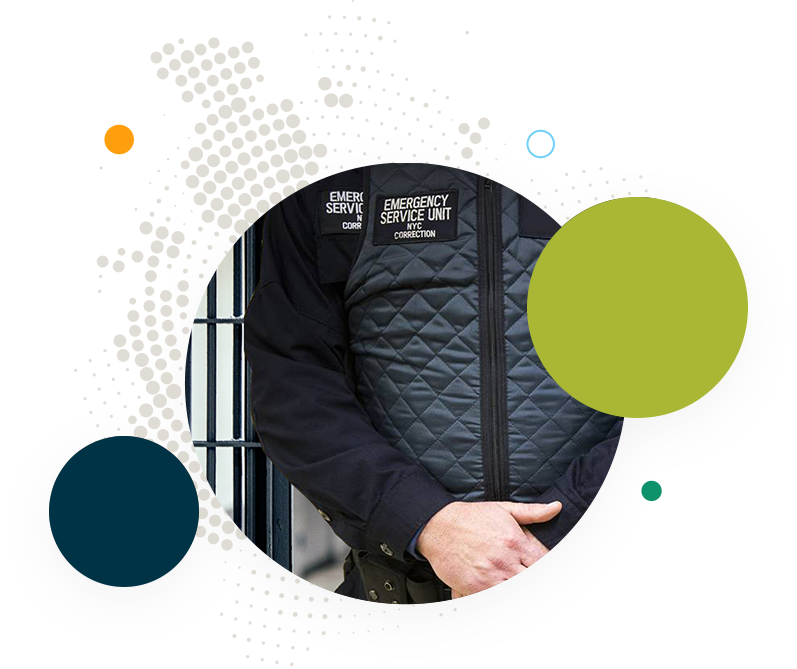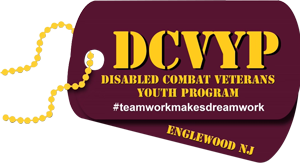By Elias Husamudeen
In all of my years as a Correction Officer and an Executive Board member, my commitment and dedication to duty is clear; always conducting my responsibilities with integrity and discipline. Through my work ethic and professionalism, it is transparent that I am passionate about what I do, receiving great satisfaction by serving others.
Rising in the ranks to Union President, a seasoned Correction Officer of over 32 years it is extremely clear that my passion has been to improve the lives of those behind bars, regardless of what side their on, and continuing to debate the challenges they may face with pride and dignity.
After more than three decades of working in the New York City Department of Corrections I understand that there’s a process way before someone enters the jail system. Jail is the last stop in that journey. For many years I asked myself “why is this issue expected to be corrected by the Correction Professionals?”
When incarcerated people are equipped with the right tools the progress is endless. We all know it is impossible to prevent some individuals from breaking the law. But there are tools we can utilize in order to rehabilitate and reduce the recidivism rate. Our work will help policy makers and corrections experts better understand these difficult and complex issues as well as influence and create policy and programs assisting everyone involved.
I’ve been in a unique position to be able to understand the lives of the citizen, the officer, the family member and the true realities incarcerated people can face. Overcoming poverty and adversity throughout my life also gives me a complex perspective and understanding of how impactful installing programs into the jail and prison system, which are rooted in great values, can be.
In an active effort to help reform incarcerated individuals and reduce the recidivism rate the Eli Global Reform Foundation acknowledges that only through resources that help educate them, provide job-training skills, cater to mental health issues, re-connect them with their families and communities and help connect them to potential employers or entrepreneurship through work release programs.
We have the unique ability to connect to educational, political and community leaders, as well as activists, businessmen, unions and an endless number of inspiring individuals committed to the same goal. We are a united group of diverse individuals truly focusing on preventing re-incarceration and educating and unifying our communities is very important to our mission.
The Eli Global Reform Foundation mission is based on having worked directly with the incarcerated population and their families at some of New York City’s toughest jails and an innate calling to do more.
Elias Husamudeen

BRINGING A NOT SO NEW CONCEPT
Jail must be a place where personal transformation can be a reality. Simply releasing incarcerated people from jail is not the answer.
For incarcerated individuals — 85% of whom will return home — the possibility of rehabilitation is undermined by the idleness and monotony of life behind bars. The continued high recidivism rate suggests that what we are doing is still not enough and can be improved.
Getting there requires innovation and close partnerships with corrections professionals and others seeking to make change.
EDUCATION AND
JOB TRAINING IN JAIL ISN’T A NEW IDEA
Studies found that those incarcerated who participate in education and job training programs were less likely to return to jail, and that the odds of finding employment, a key to re-entry success, were higher for those who participated in jail/prison based academic or vocational education programs than for those who did not. Incarcerated people should receive vocational or GED-level educational opportunities and job-training because the reality is that according to some studies more than 65 percent of job vacancies don’t require college but does require a trade or skill. Helping people to positively contribute to society after incarceration is a key part of shutting the door on recidivism. Behind the statistics on recidivism are real people directly impacted by incarceration.


WORKING FROM
THE INSIDE
Putting Corrections
Back in Correction
Throughout American people are jailed over the course of a year, mostly for crimes related to poverty, mental illness, addiction and gang related crimes. At the Eli Global Reform Foundation – Our mission is to assist leaders in the public and private sector to drive change by advancing new knowledge about justice reform, reducing the flow of incarcerated people and implementing solutions both on the inside and outside.
Rehabilitation and recidivism are not just a problem for the community but for Correction Officers and staff who work inside the jails. One of the best ways to reduce recidivism is to boost employability and earnings, and to re-define what jail should be when it is clearly appropriate. That work begins by investing in incarcerated people and their futures. It must also reconnect the incarcerated individuals with family members who can support them during and after jail. Correctional facilities can be an important and extremely supportive tool, with easy access to inmates and visitations with the parent in a child-friendly environment. We understand the importance of the relationship between the incarcerated parent and children more than anyone and how helping to foster those relationships can be a tool to assist in avoiding generational incarceration.
Working to support communities also requires bridging the gap between the incarcerated people and mental health services. Undeniably, there are a large number of people with mental health and substance abuse issues are in jail. While the criminal justice system overall is filled with people from communities where access to mental health care is limited or not clearly defined, it is possible to provide the care that people need to improve their mental health which will lead to rehabilitation and the reduction of recidivism. For people to return home better able to support themselves and their families, it’s essential to invest in them while they are incarcerated.
Jails have had the biggest impact on the most vulnerable populations: people who are poor and those with histories of substance abuse, mental health disorders, and/or other behavioral health problems.
It is time to invest in proven solutions to reduce recidivism by promoting education and job-training to incarcerated people while in custody.
ENHANCING THE ROLE OF CORRECTION OFFICERS
Mental Health Worker
Educator | Counselor
Health Care Worker
How does one create a road to jail reform without Correction Officers? When it comes to reform Correction Officers have been on the outside looking in. Correction Officers are disregarded and very rarely, if at all, consulted when attempting to institute programs to reduce recidivism and bring about rehabilitation for those incarcerated. This generation of Correction Officers are one of the most if not the most educated Correction Officer in the country.
In New York, for example starting around 1999 the requirement of sixty college credits or an associate degree were added onto the minimum qualifications to become a Correction Officer. Jail systems have evolved, and so has the staff assigned to them. Correction Officers have been known by many titles throughout the years. Although their job description of Care, Custody, and Control of incarcerated people remains the same their role has evolved. The actual role of Correction Officers has expanded by social and economic pressures with more emphasis being placed on Care. In the case of Correction Officers, the reality of change in the actual duties isn’t reflected as it should be.
In the Eli Global Reform Foundation, we look to incorporate the resources that already exist inside the system, to promote change. Correction Officers can work collectively to provide needed services and training to the incarcerated people who are accepted in the education and work release program. Today’s Correction Officers hold degrees and training in education, child education, criminal justice, mental health, and when their training and education is incorporated with other Correction professionals and practitioners it becomes an obvious ingredient for success in our goal of rehabilitation and reducing recidivism.


WORKING FROM
THE OUTSIDE
Preventing Generational Incarceration
We acknowledge jails have had the biggest impact on the most vulnerable populations: people who are poor and those with histories of substance abuse, mental health disorders, and/or other behavioral health problems. It is time to acknowledge that the jail is also a generational curse for this population as well.
The mission of reducing the flow of incarcerated people will begin on the inside but must be addressed on the outside as well. We know rehabilitation and recidivism are not just a problem for the for those incarcerated, but it is usually passed on from generation to generation and many times the children of incarcerated people become incarcerated people themselves. With 50 percent to 75 percent of incarcerated individuals reporting having a minor child and data from 2007 stating that Latino and African American children are 2.3 and 7.5 times more likely than Caucasian children to have an incarcerated parent; we understand how seriously and deeply the intergenerational affects are.
The family members of previous or current inmates are hidden victims in this issue and receive little to no support regardless of the personal, financial, or psychological impact of their family members incarceration. Children who have parents incarcerated face countless challenges, hardships and extreme difficulties with their psychological growth. The risk factor for a child facing this hardship is impossible to predict but most encounter issues in life with building and maintaining relationships, getting acclimated in school regularly settings dealing with suspension or expulsion, antisocial behavior, economic hardships and much more. The amount of strength and quality in family support play major roles in their ability to succeed with overcoming life’s challenges. Due to these circumstances, it is critical for us to make a well-planned attempt to correct this issue.
One of the best ways to reduce recidivism is to address it before it starts and cut it off at the path. The children who grow up in households or environment of incarcerated people who are poor and those with histories of substance abuse, mental health disorders, and/or other behavioral health problems usually follow in the footsteps of their parents and caregivers. Some escape but they are usually the exception to the rule. If we can catch it in its adolescent years, we may be able to stop it altogether and bring an end to this generational curse.
We understand that if we focus on the prevention of incarceration in the life of those most prone to end up there, we can put a significant dent in the road to incarceration. We understand more than most that prevention is the most effective way to lower the rate of incarceration of future generations.
Become a volunteer





